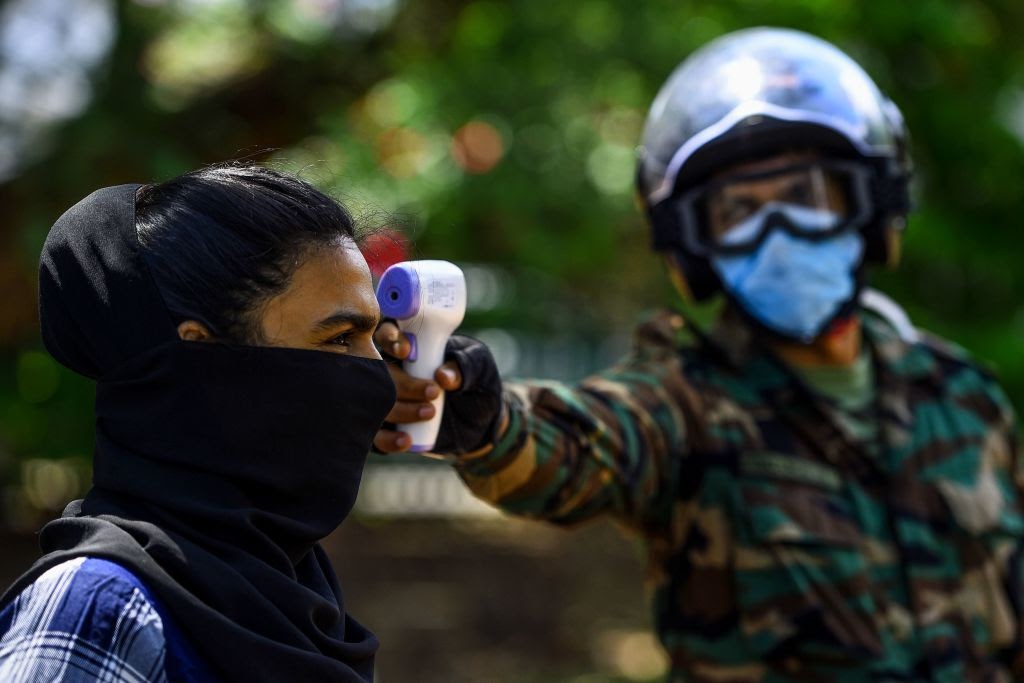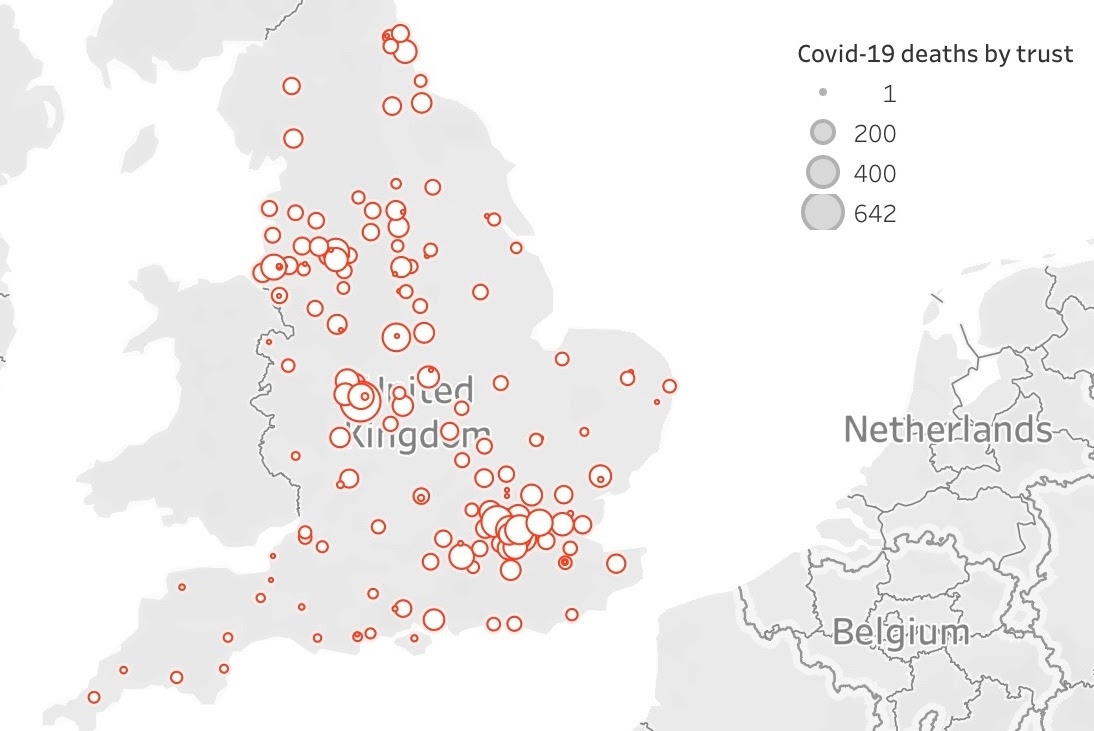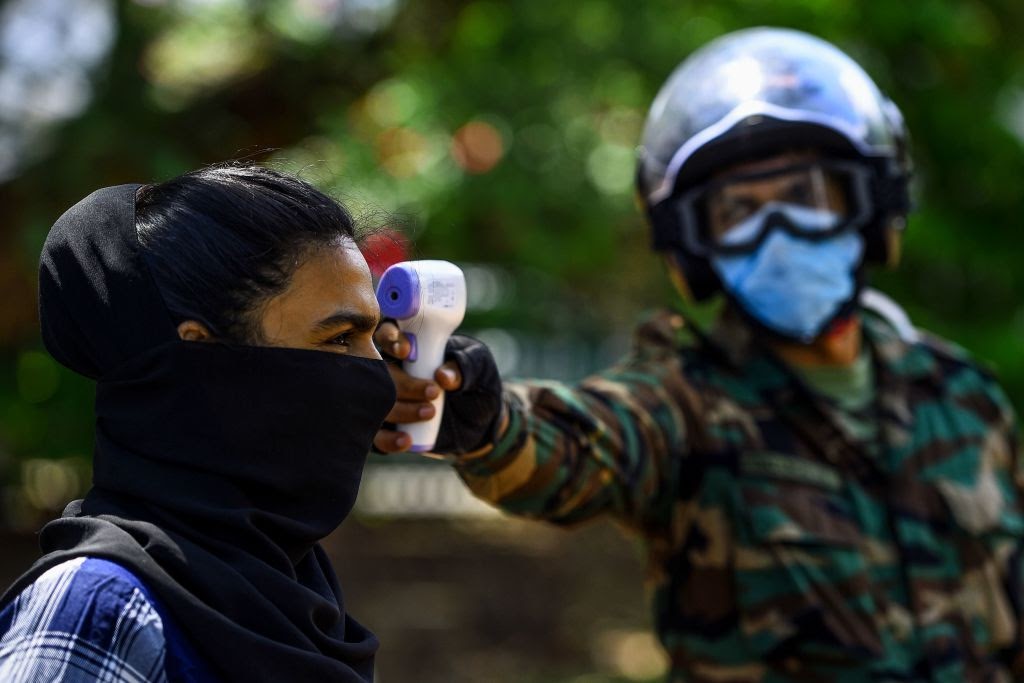The Spectator brings you the latest insight, news and research from the front line. Sign up here to receive this briefing daily by email, and stay abreast of developments both at home and abroad:
News and analysis
- Manchester and Liverpool are now seeing the most Covid-19 cases, according to the Health Service Journal.
- Social restrictions are to remain in place for at least the rest of the year, says chief medical officer Chris Whitty. Details below.
- Human trials begin today for vaccines in Germany and the UK. Matt Ridley weighs up the likelihood of Covid-19 treatments in the 10,000th issue of The Spectator magazine. More analysis below.
- The Portuguese nurse mentioned by name in the Boris Johnson address to the nation has spoken out about the experience, saying he is ‘extremely proud’ to have cared for the PM in the ICU.
- NHS Digital had to apologise to the families of over 10,000 deceased patients, after sending letters warning about their risks of contracting Covid-19.
- The leader of the ASCL headteachers’ union said that 1 June is the earliest ‘realistic’ date when schools could reopen. Children in Scotland may return to school part-time under a new rota system.
- Some 20,000 households in the UK are being asked to take part in a study to track the spread of Covid-19.

Coronavirus’s second wave
Covid-19 will not be expunged: we’ll have to learn to live with it. So said Chris Whitty, the chief medical officer, in the No. 10 briefing last night – and so the conversation moves on to minimising the second wave of Covid-19 infections. The seven NHS Nightingale hospitals lie almost empty, but are being maintained in readiness for a second Covid-19 spike. The world’s first experiment in trying to halt a virus means huge uncertainty over what happens when lockdown ends. Attention is now turning to this: questions on how to flatten the second wave or implement a face mask strategy circle round. As Dr John Lee writes, there is no evidence that masks are effective in the general public. Or what about apps, and trying to replicate a South Korean model? We can try, but there’s no certainty that they’d work. But with no sign of a vaccine, it will soon be time to experiment – and trust the public to show good sense as we go through the process of trial and error. Sage, the government’s scientific advisory group, has been asked to outline what that experiment might look like: all of it aimed at minimising, rather than avoiding, the second wave.
In words
It’s totally surreal. It’s like Christmas shopping several times, and it came overnight. Straight after the border was closed.
– Monica Sörpeböl, who manages a Norwegian off-license close to the Swedish border (alcohol prices are about 50 per cent higher in Norway)
It’s like a desert town, completely abandoned.
– Kaj Hänninen, who runs a Swedish off-license in the border town of Charlottenberg.

New trials begin
The first human trials for a Covid-19 vaccine in Germany and the UK start today. Some 500 people are taking part in Oxford University’s testing process, with 200 joining a trial run by BioNTech in Frankfurt. Oxford’s Andrew Pollard has said millions of doses could be ready by the autumn provided ‘nothing goes wrong in that complex process’ of clinical trials. But that’s a big if. As Matt Ridley explains in this week’s 10,000th issue of The Spectator magazine, there are about 80 vaccine trials worldwide – but the hunt for a cure is looking more promising. He’s optimistic that, within a month or two, one of the 30 or more therapies currently being tested is likely to prove effective and safe. But therapies are not vaccines – which is still months away, if we’re lucky. UK trials have started just as the chief medical officer Chris Whitty announced there will be some social distancing measures in place for the rest of the year, as we learn to live with the virus until ‘ideally’ a vaccine emerges.
Global news
- Four times as many people may have been infected in the first wave of Covid-19 in mainland China as first thought, according to Hong Kong researchers.
- The global recession should lower carbon dioxide emissions by 6% this year, according to the World Meteorological Organisation.
- All World Health Organisation members should participate in a review into the organisation’s handling of the pandemic according to Scott Morrison, Australia’s PM. (Here’s TheSpectator’s critique of the WHO.)
- China has donated $30 million to the World Health Organisation.
- Harvard University will not accept $9 million in coronavirus relief funding following criticism from Donald Trump.
- Two cats in New York have become the first pets in America to test positive for Covid-19.
In data: Manchester’s Covid-19 deaths still rising steeply

While Covid-19 deaths have plateaued nationally, they are rising steeply in Greater Manchester where 1,052 hospital patients have died: only five fewer than in North West London, which felt the impact of the pandemic much earlier (Health Service Journal)
Podcast: What’s the Covid-19 effect on the NHS?
The NHS has been transformed to deal with the coronavirus threat, and it’s thus far holding up, despite fears over capacity. But what has been the effect on the rest of the health service, and its usual patients? Fraser Nelson speaks to Alastair McLellan, Editor of the Health Service Journal. Listen here.
Research
Are smokers less at risk of contracting Covid-19? A new study from a hospital in Paris suggests ‘nicotinic agents could provide an efficient treatment for an acute infection such as Covid-19’, after it found ‘of those admitted to hospital, whose median age was 65, only 4.4 per cent were regular smokers. Among those released home, with a median age of 44, 5.3 per cent smoked.’ French researchers now plan to use nicotine patches to test virus patients and healthcare workers, to examine further the links between nicotine and Covid-19.
Coronomics
- The world is heading for an ‘unprecedented’ recession, as credit rating agency Fitch predicts global GDP will contract by 3.9% in 2020.
- Business activity has collapsed to record lows across the Eurozone, as the area’s purchasing Managers Index (PMI) has reached 13.5. The UK’s PMI fell to a record low of 12.9.
- 2.8 million workers in the UK have been placed on the government’s furlough scheme.
- The government will borrow £180 billion in the next three months to fund its Covid-19 rescue package. UK borrowing in 2020/21 is likely to surpass the 2009/10 record following the financial crash.
- Universities could miss out on £2.5 billion in tuition fees next year.
- South Korea’s GDP shrank 1.4% between January and March, its biggest fall since the 2008 financial crash.
More from The Spectator
Spectator writers in lockdown – by the people stuck with them – The Spectator
China is using coronavirus to crack down on Hong Kong – Luke de Pulford
Boris’s difficult decision: When should lockdown be lifted? – James Forsyth
The contenders – and challenges – in the race to cure Covid – Matt Ridley
The Swedish experiment looks like it’s paying off – Fredrik Erixon






Comments